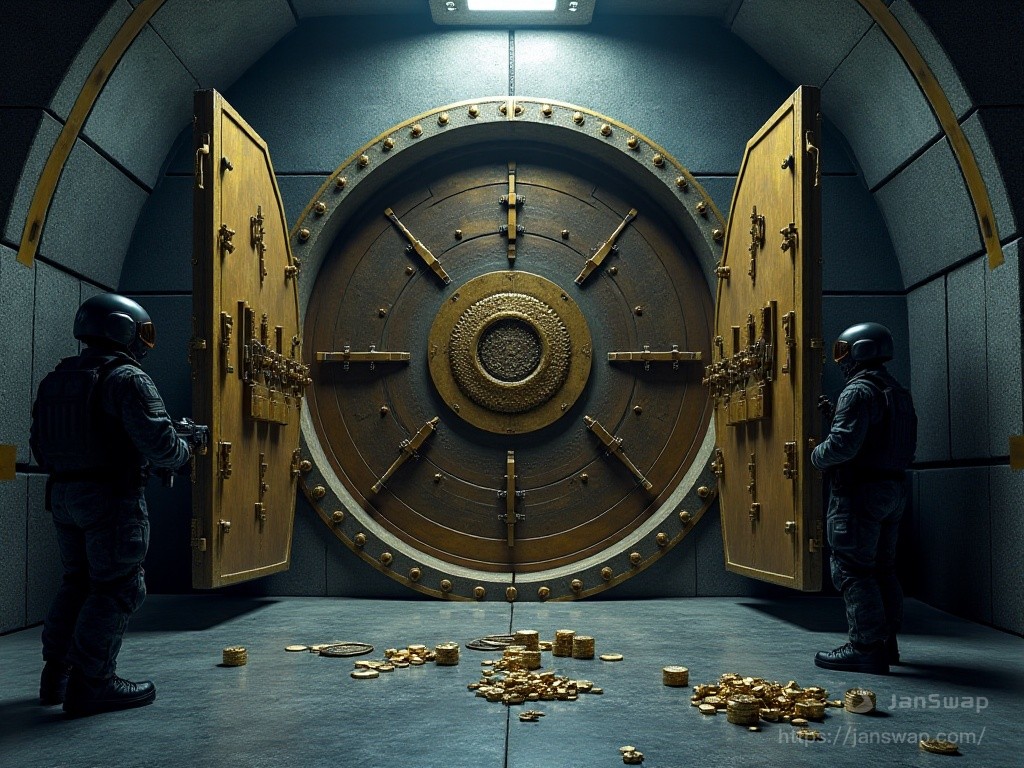

Introduction
Hello everyone! These past few days while browsing social media, I've received numerous private messages from friends asking about cryptocurrency security. Honestly, I'm excited to see so many people interested in this topic! After all, with digital assets being so popular now, who doesn't have some coins in their wallet? And with recent market volatility, everyone is naturally concerned about their asset security. Today, let me explain cryptocurrency security in the most straightforward way.
Why It Matters
Let me share a true story about security that gave me chills. In 2021, a major exchange was hacked, and $600 million worth of cryptocurrency was stolen in one go! That's no small sum! Even more frightening is that in 2022 alone, global cryptocurrency losses due to security issues reached $4 billion. To put it in perspective, that's enough to buy several luxury properties in Beijing, Shanghai, Guangzhou, or Shenzhen.
You might think these incidents only affect large institutions, but what about regular users? Small-scale theft cases are countless. I know a friend who lost 20 ETH by operating on an unreliable platform - it still hurts to think about it. So regardless of how much digital assets you hold, security awareness is crucial.

Security Foundations
Now that we all understand the importance of security, let's start with the basic concepts. The cryptocurrency security system is primarily built on two crucial technical foundations: decentralization and blockchain technology.
Decentralization might seem abstract to many. Think of it this way: when we use Alipay for purchases, all transaction information goes through Alipay's servers, which acts as a central point managing all users' fund transfers. However, in cryptocurrency networks like Bitcoin, there is no such "center." All transaction information is stored across thousands of nodes globally.
It's like a massive friend circle where everyone keeps a complete chat history. Even if someone's phone breaks, others still have backups, so information isn't lost. That's the beauty of decentralization! Even if hackers attack some nodes, the entire network continues to function normally.
As for blockchain technology, it ensures all transaction records are authentic and tamper-proof. Here's a vivid example: imagine writing a diary with a special feature. After completing each page, that page becomes linked to all previous pages, as if connected by an invisible thread. Moreover, this diary automatically duplicates and distributes to others worldwide. If someone wants to secretly modify a page, they would need to change all subsequent related pages and ensure all copies worldwide are modified - an practically impossible task.

Practical Protection
Let's move on to practical implementation and discuss how to protect your digital assets in daily use.
First, let's talk about wallet security. In the cryptocurrency world, private key management is paramount. What's a private key? Think of it as an extremely complex password, but much more important than regular payment passwords. Once a private key is lost, your assets are irretrievable. Here's a striking statistic: approximately 20% of Bitcoin is permanently locked on the blockchain due to users losing their private keys. These Bitcoin are worth tens of billions of dollars - painful to think about!
Therefore, wallet selection must be careful. Reputable hardware wallet brands like Ledger and Trezor have undergone rigorous security certification. Though they might be expensive, the investment is worthwhile compared to potential asset losses.
I've been a Ledger user for almost two years. Honestly, using a hardware wallet felt inconvenient at first compared to mobile wallets. But over time, it became very reassuring, as private keys are stored offline where hackers can't reach them through networks.
Regarding transaction security, I recommend never keeping all assets in one place. Just like we don't keep all our money in one bank account. I typically keep 80% of assets in cold wallets (offline hardware wallets) for long-term holding, and 20% in hot wallets (online software wallets) for trading. This way, if the hot wallet has issues, only a small portion of assets is at risk.
Another crucial point is backing up recovery phrases. These are usually 12 or 24 English words that can restore your private key. Never store recovery phrases on phones or computers; write them on paper and keep them in secure places like safes. I know an expert who splits their recovery phrase into parts and stores them in different bank safety deposit boxes, ensuring assets remain safe even if one location is compromised.

Advanced Operations
By now, you should understand basic security protection. However, users with substantial assets might need to know some more advanced security measures.
For instance, multi-signature mechanisms are truly impressive. Simply put, multiple private keys are required to complete a transaction. It's like a super safe that needs three keys to open. Statistics show that institutional users using multi-signature have over 90% lower security incident rates than regular users.
I previously managed funds for a DAO organization using a "3-of-5" multi-signature mechanism. This meant at least 3 out of 5 key holders had to agree to execute any fund transfers. This way, funds remain secure even if one private key is compromised.
Another advanced technique is using hardware signers. These dedicated signing devices can complete transaction signatures offline. Even if your computer is hacked, private keys remain secure. I know some traders who use hardware signers for large transactions - though more complicated, the security is undeniable.

Future Outlook
As technology evolves, cryptocurrency security measures continue advancing. I'm most excited about quantum encryption technology applications. Since traditional encryption algorithms might be vulnerable to quantum computers, many projects are researching quantum-resistant encryption algorithms. Studies suggest that by 2025, approximately 15% of cryptocurrency projects will adopt quantum-resistant encryption algorithms for enhanced security.
Biometric technology applications in cryptocurrency security are also worth watching. Some wallets already support fingerprint and facial recognition. Imagine completing transaction signatures with just an iris scan in the future - sounds sci-fi, right?
Another developing trend is social recovery mechanisms. This interesting solution helps users recover lost private keys through a predetermined friend network. If you lose your private key, you can regain asset control through verification by pre-designated trusted friends. This mechanism ensures security while solving the problem of regular users losing private keys.

Final Thoughts
After all this discussion, the core message is simple: in the digital asset world, security is always paramount. As the ancient saying goes, "Wealth accumulated over a lifetime can be lost in minutes" - this is especially true in the cryptocurrency world.
I suggest starting with basic security measures like using hardware wallets, backing up private keys, and enabling two-factor authentication. Once familiar with these basics, gradually try more advanced security measures. Developing security awareness is a gradual process, don't rush it.
Finally, regardless of how many digital assets you hold, always prioritize security. Making money isn't easy, but keeping it is harder. I hope this article helps you build comprehensive security awareness to better protect your digital assets. If you have other questions, feel free to comment below, and let's discuss cryptocurrency security together.






 Français
Français Deutsch
Deutsch Русский
Русский Português
Português Español
Español Italiano
Italiano Türk
Türk
